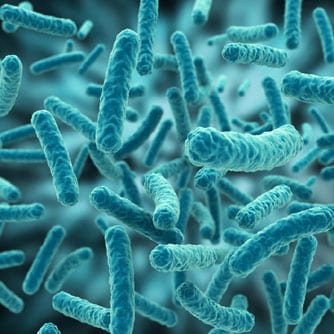Rheumatoid arthritis is an autoimmune disease that attacks joint tissue and causes painful, often debilitating stiffness and swelling. The human gut is home to hundreds of species of beneficial bacteria, including Prevotella copri, which ferment undigested carbohydrates to fuel the body and keep harmful bacteria in check. While the human immune system possesses the ability to distinguish benign or beneficial bacteria from pathogenic bacteria, when the gut’s microbial ecosystem is thrown off balance, P. Copri can contribute to the onset of rheumatoid arthritis. Dan R. Littman, from New York University School of Medicine (New York, USA), and colleagues employed advanced DNA analysis to compare gut bacteria from fecal samples of patients with rheumatoid arthritis and healthy individuals. The researchers found that P. copri was more abundant in patients newly diagnosed with rheumatoid arthritis than in healthy individuals or patients with chronic, treated rheumatoid arthritis. Moreover, the overgrowth of P. copri was associated with fewer beneficial gut bacteria belonging to the genera Bacteroides. The study authors conclude that: “This work identifies a potential role for P. copri in the pathogenesis of [rheumatoid arthritis].”
Gut Bacteria Linked to Arthritis
Scher JU, Sczesnak A, Longman RS, Segata N, Ubeda C, Littman DR, et al. “Expansion of intestinal Prevotella copri correlates with enhanced susceptibility to arthritis.” Elife. 2013 Nov 5;2(0). doi:pii: e01202.
RELATED ARTICLES




